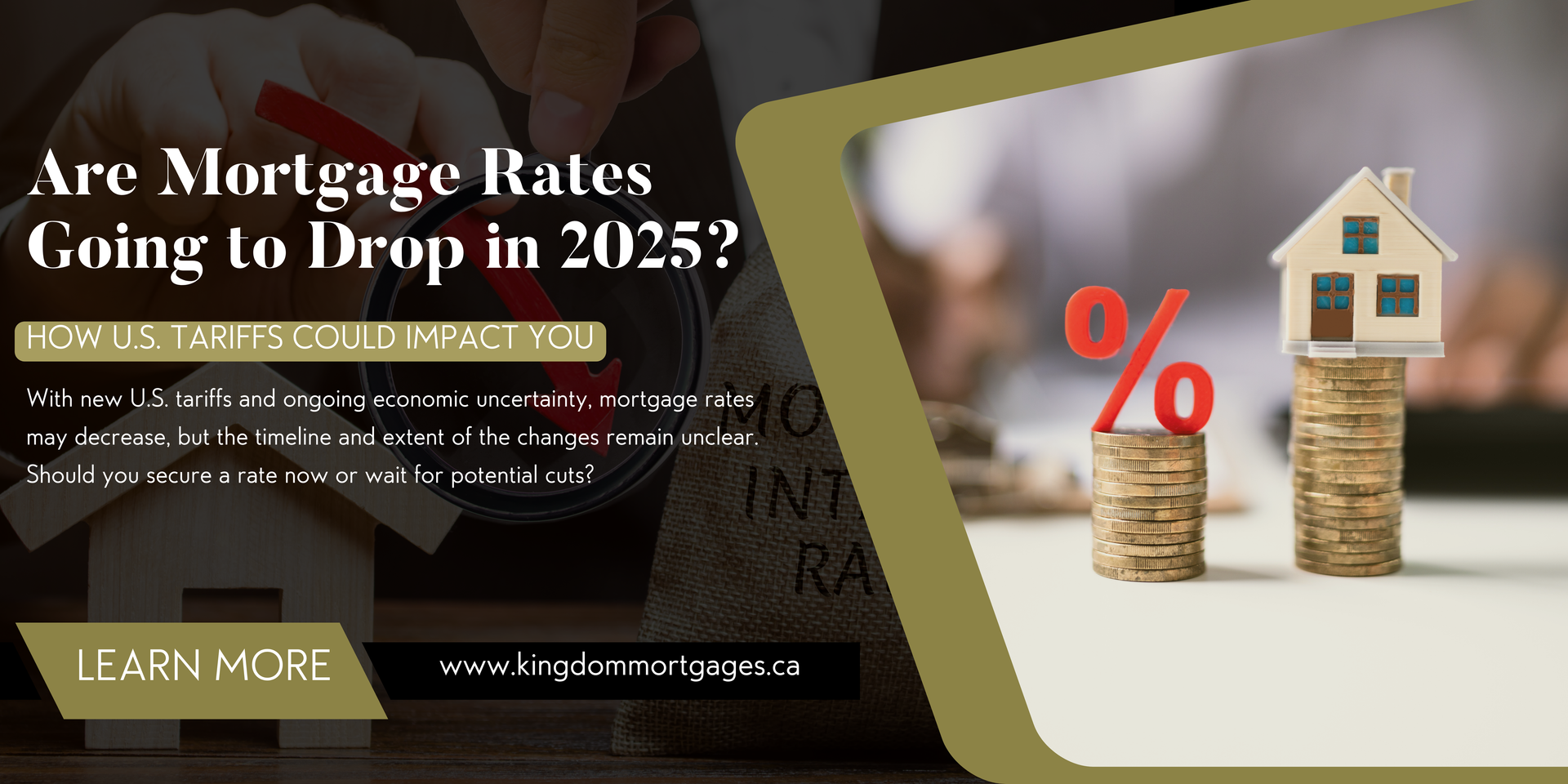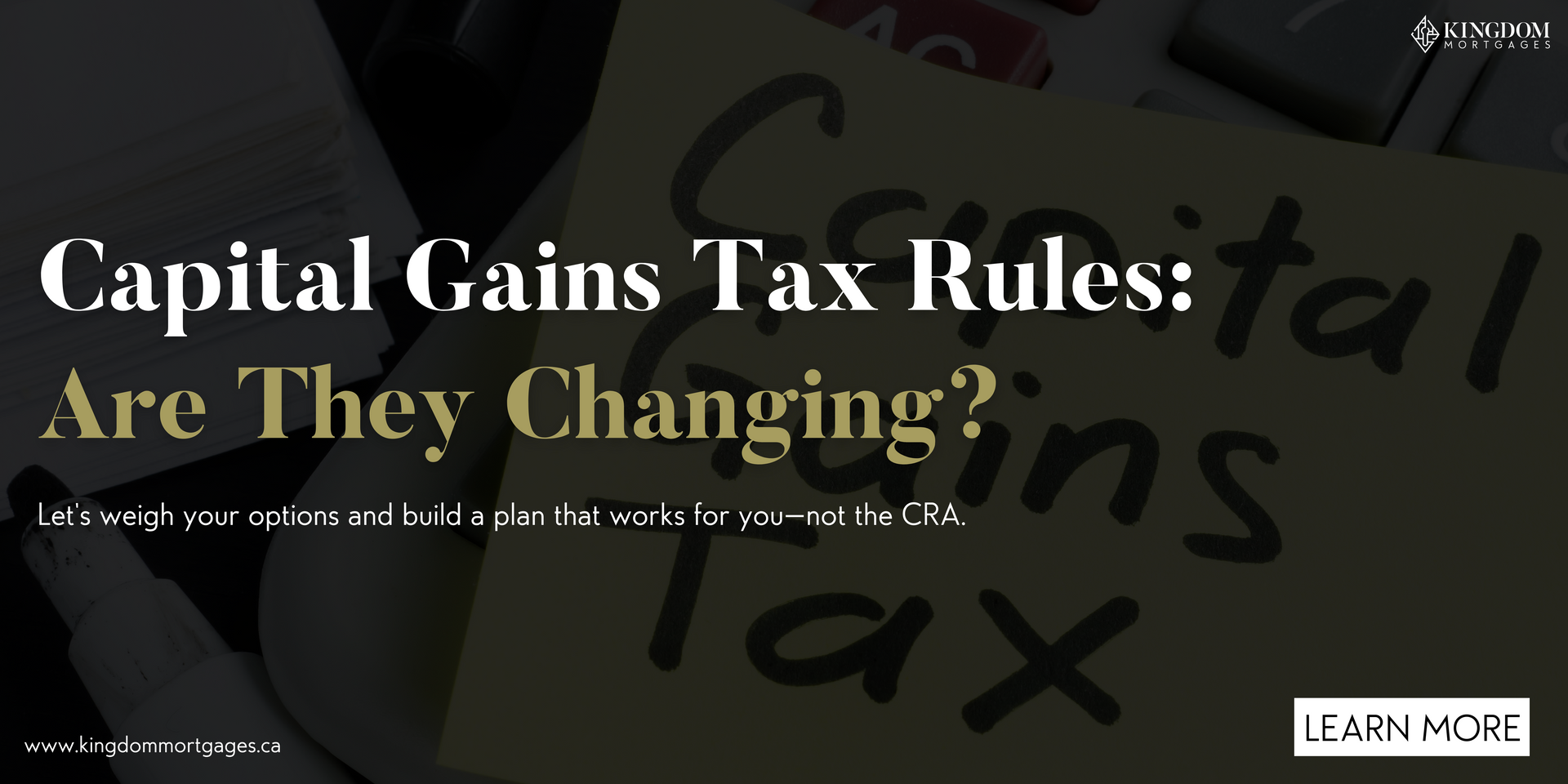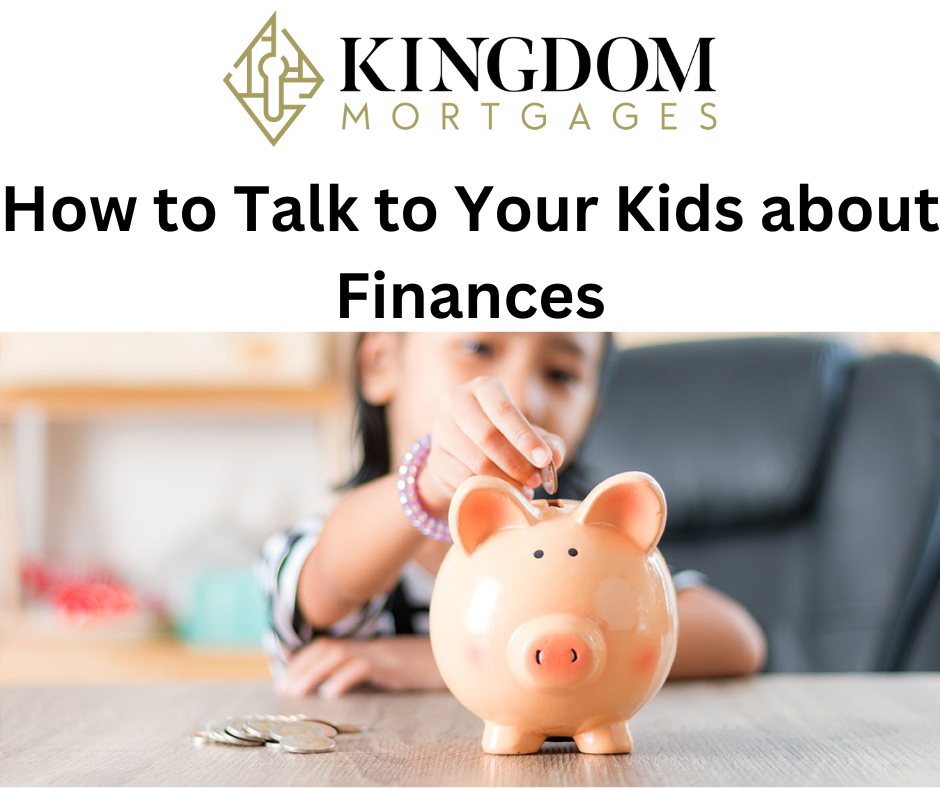Are Mortgage Rates Going to Drop in 2025?
Are Mortgage Rates Going to Drop in 2025? How U.S. Tariffs Could Impact You

Is the Economy Going to Crash? What Canadian Homebuyers Need to Know
With new U.S. tariffs on Canadian goods already in place—and Canada retaliating with its own tariffs—many Canadians are asking:
● "Are mortgage rates going to go down in 2025?"
● "Is the economy going to crash?"
● "How will these tariffs impact home prices and affordability?"
These are valid concerns, especially for homebuyers, homeowners renewing their mortgages, and those considering refinancing. While we can’t predict the future with certainty, the Bank of Canada (BoC) is widely expected to cut interest rates in 2025 to help offset economic uncertainty. However, rising inflation and shifting trade policies could complicate how quickly and how much rates actually drop.
Here’s what you need to know about how these tariffs could affect Canada’s economy, mortgage rates, and home affordability in the coming months.
Will Mortgage Rates Go Down in 2025?
The Bank of Canada has been signaling rate cuts for months, but how low they go—and how quickly—depends on several factors:
● Tariffs are slowing economic growth – The new U.S. tariffs on Canadian goods, and Canada's retaliatory tariffs on U.S. imports, are putting pressure on businesses and increasing costs for consumers. If economic growth slows significantly, the BoC may lower rates to keep borrowing and spending active.
● Inflation is still a concern – Higher tariffs often lead to higher prices for goods, which could drive up inflation. The BoC has to balance rate cuts with the risk of rising inflation, which could slow the pace of cuts.
● Global uncertainty adds risk – The U.S. election, ongoing geopolitical tensions, and financial market fluctuations all add unpredictability. If the economy worsens, rate cuts may come sooner and deeper than expected.
What Does This Mean for You?
Rates are expected to decrease, but we’re in uncertain times. If you're thinking about buying a home, refinancing, or renewing your mortgage, the best approach is to lock in now with flexibility to adjust later.
Should You Lock in a Mortgage Rate Now or Wait?
Many homebuyers and homeowners are wondering whether they should lock in a mortgage rate now or wait for rates to drop further in 2025. The good news? Most lenders allow you to lower your rate if rates drop before closing.
Here’s why locking in now is a smart move:
● Locking in protects you from unexpected rate hikes – While rates are projected to drop, inflation or unexpected economic shocks could slow cuts or even cause rates to rise. Locking in now ensures you’re covered.
● Many lenders allow a rate drop before closing – If rates go lower before your mortgage is finalized, most lenders will adjust your rate accordingly. This gives you peace of mind knowing you're getting the best possible deal.
● Economic uncertainty makes waiting risky – Tariffs, inflation, and global trade tensions all create uncertainty. Locking in now ensures you don’t miss out on today's competitive rates while still giving you room to adjust.
.
Is the Economy Going to Crash? What This Means for Canadian Homebuyers
While Canada’s economy is facing major uncertainty, most experts do not expect a full-blown crash. Instead, we’re likely to see:
● Slower economic growth due to rising costs from tariffs and inflationary pressures.
● Lower interest rates as the BoC tries to stimulate economic activity.
● A cooling housing market in some regions, as affordability challenges affect demand.
The best thing you can do right now is stay informed and make proactive mortgage decisions that protect your financial future.
Let’s Talk About Your Mortgage Options
Navigating the mortgage market in uncertain times can be confusing, but you don’t have to do it alone. Whether you’re looking to buy a home, renew your mortgage, or refinance for a better rate, I can help.











